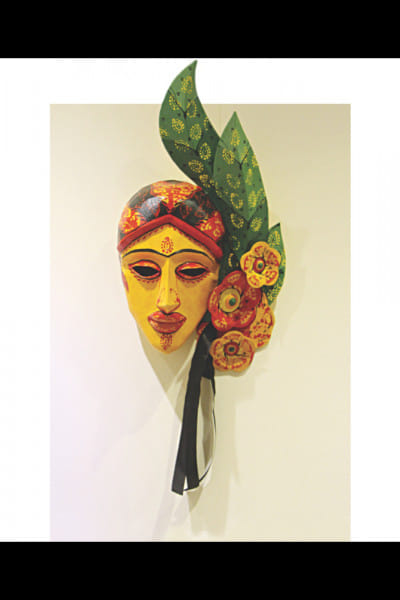The moral wish list

With time the Pahela Baisakh festivities in Bangladesh have assumed a grand and massive scale, as if people are making a bold statement about the country's secular "Bangali" orientation. This year, especially, the celebrations brought a joyous relief after months of political tension. And that is how it should be, since traditionally the New Year is the harbinger of "new beginnings."
However, as I watched the noboborsho festivities, it occurred to me that the focus has gradually shifted to the materialistic aspects of the occasion —food, fashion and commercially competing cultural programs. We rekindle the spirit of Pahela Baisakh by singing Esho he baishakh almost like a mantra. But not many of us focus on the core message of the song . . . bathing the earth in flames so that it is cleansed of all impurities. A better world through the baptism of fire. Unfortunately, our current preoccupation with material success makes us forget that a better world can only be created through the redemptive power of human love and caring.
We applaud people on their past year's successes -- accelerated promotions or lucrative business deals. Seldom do we recognize individuals for their moral and spiritual accomplishments. The news and media devote banner lines to high academic achievers, start-up venture capitalists and successful business entrepreneurs. But we fail to eulogize the person who picked up a dying man hit by a bus and took him to the hospital, or saved a woman from being assaulted by rapists or rescued the worker buried under the rubble of a collapsed garment factory. Yet, we all recognise that our greatest challenge is the moral bankruptcy that plagues our society. Then, why do these noble people who render selfless social service remain unsung heroes? Is it because most of us have been conditioned to undermine the meritocracy of moral values as compared to material success?
The obsession with material success is surprising given that the virtues we remember about people when they are no longer with us are love, kindness and selflessness. How many times have we heard a memorial speech where someone was remembered because he became the vice-president of a company in record time? Very few. But we invariably reminisce about a person's positive character traits – the capacity to love selflessly or to defend what is morally right. These attributes are what hold us together in challenging times. When we see these qualities in others, we are inspired and become more aware of what we can do toward building a better and balanced world.
Lest I sound vague let me elucidate my point with a mundane example. Recently, while vacationing in India, I visited Tipu Sultan's Summer Palace in Srirangapatna near Mysore. Painted on its wall was a detailed scene of the last and decisive battle fought between Tipu and the combined forces of the Nizam of Hyderabad and the East India Company in 1799. The Battle was momentous in its historic impact since it was a heroic example of an Indian king resisting the British occupation. At the battle's climax, Tipu Sultan was betrayed by one of his confidants and killed. The images of Tipu fighting valiantly on his elephant created a deep impression on my mind. It was a stark reminder of how one of the last independent monarchs of the subcontinent fought and died for his freedom. The magnificence and opulence of the other palaces and monuments I visited paled in comparison to the intensity of the emotion that Tipu's bravery evoked….
On Pahela Baisakh, while reflecting on my life, I was reminded once again of Tipu's lone struggle for freedom and the power of moral accomplishment as opposed to material achievements. I realised that the people I most admire are the ones that touch me with kindness, move me with their selfless spirit or have the courage to fight for a right cause. That's how I want to be remembered too. Unfortunately, I have not yet achieved the generosity of character that can make a difference in the lives of others. And when I am in a pensive mood I am overcome by the morbid thought that people may find it hard to expound my virtues when they remember me after my death. But, can I make the quantum leap from a self-centred existence to becoming a giving and selfless human being? Or have I become too comfortable with my moral mediocrity?
The least I can do is to answer my inner calling to create a meaningful life. It won't be easy because building a strong character is far more difficult than building a successful career. For, building character will entail a constant struggle between my external environment and my actual self. And I may stumble – but will I fall?
I will know next year on Pahela Baishakh. And that is what Pahela Baishakh will mean to me – the day I assess my moral accomplishments against my material achievements…
The writer is a renowned Rabindra Sangeet exponent and a former employee of the World Bank. E-mail: [email protected]

 For all latest news, follow The Daily Star's Google News channel.
For all latest news, follow The Daily Star's Google News channel. 



Comments